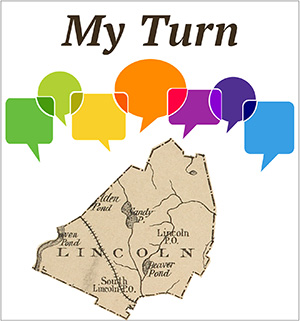Dear Lincoln neighbor,
Mosquito season is upon us! Below you’ll find some great tips for deterring mosquitoes and their bites while still enjoying the outdoors. These preferred prevention measures do not include the spraying of chemicals designed to kill mosquitoes or their larvae. Instead, the emphasis is on preventing bites through personal protection and repelling the mosquitoes. This approach has the additional benefit of preventing unintended harmful consequences of chemical spraying to humans, pets, livestock, crops, insects, birds, and the entire food chain.
There are many companies who sell mosquito and tick prevention services to residents, most of which include chemical management techniques. These companies often imply that the insecticides they spray on yards are safe for everything except mosquitoes and/or ticks. However, some of these companies are also very reluctant to reveal what chemicals they use.
Instead of hiring a company to spray chemicals on and around your yard, we hope you will focus on the prevention measures outlined in the enclosed brochure. Furthermore, no spraying may be performed within 100 feet of a wetland or 200 feet of a year-round flowing stream without it first being reviewed and approved by the Conservation Commission.
Mosquito monitoring
Lincoln is part of the East Middlesex Mosquito Control District (EMMCD) and the town pays for annual mosquito surveys and surveillance. This involves select trapping and testing of mosquitoes in Lincoln. The results of the testing are shared with the Lincoln Board of Health and if infected mosquitoes are discovered in Lincoln, residents will be notified. Please note that the town does not fund annual spraying of mosquito larvae or adults and therefore, EMMCD does not conduct any chemical management in Lincoln.
Mosquitoes are a deterrable pest. It’s important we all do our part to prevent mosquito bites because a very small number of mosquitoes may be infected with diseases such as West Nile virus and Eastern Equine Encephalitis (EEE). Fortunately, the risk of such diseases is extremely low in Lincoln. Historical surveillance data available at the Department of Public Health revealed that there have been zero instances of mosquitoes with EEE detected in Lincoln in over 60 years.
How to prevent mosquito bites
- Personal protection is key! Wear long sleeves, long pants, and socks when weather permits.
- Many mosquitoes are most active from dusk to dawn. Take extra precautions during these times.
- Apply an EPA-approved personal repellent. Follow directions on the repellent label.
- Use mosquito netting where appropriate (for example over baby carriages or hats).
- Ensure screens are repaired and tightly attached to doors and windows to prevent mosquitoes from entering the home.
- Use a fan when sitting outside. Even a light breeze will deter a mosquito’s ability to zero in on an individual.
How to protect your animals
Mosquitoes can infect horses and other animals. West Nile virus and EEE do not spread from horses to humans in any way. Vaccines for horses are considered highly protective.
Reduce animal exposure to mosquitoes by changing water buckets at least twice weekly, installing screens, keeping animals indoors during peak mosquito activity hours, turning off lights at night (mosquitoes are attracted to light), and applying approved repellents to animals.
Reduce mosquito habitat in your yard
Remember: mosquitoes only need standing water for four days to successfully breed, so don’t let water collect. Standing water only the size of a bottle cap can still support some species of mosquitos.
- Remove standing water from places like gutters and wheelbarrows.
- Replace water frequently in bird baths and wading pools.
- Ensure rain barrels are covered with a screen.
Wildlife to the rescue
Support conservation land and plant gardens that attract natural mosquito predators. Dragonflies, damselflies, turtles, frogs, bats, and many species of birds such as hummingbirds and wrens are voracious mosquito eaters. Although wildlife won’t eat every single mosquito, healthy ecosystems will help maintain a balance between predator and prey, keeping mosquito populations in check.
We hope you find the information referenced in this article helpful and that it provides you with the tools you need to confidently enjoy the outdoors without worrying about mosquitoes and their bites. If you have any questions, please do not hesitate to reach out to us. We look forward to seeing you on Lincoln’s trails!
Sincerely,
The Lincoln Conservation Commission
The Lincoln Board of Health
The Lincoln Agricultural Commission
The Lincoln Land Conservation Trust
“My Turn” is a forum for readers to offer their letters to the editor or views on any subject of interest to other Lincolnites. Submissions must be signed with the writer’s name and street address and sent via email to lincolnsquirrelnews@gmail.com. Items will be edited for punctuation, spelling, style, etc., and will be published at the discretion of the editor. Submissions containing personal attacks, errors of fact, or other inappropriate material will not be published.
